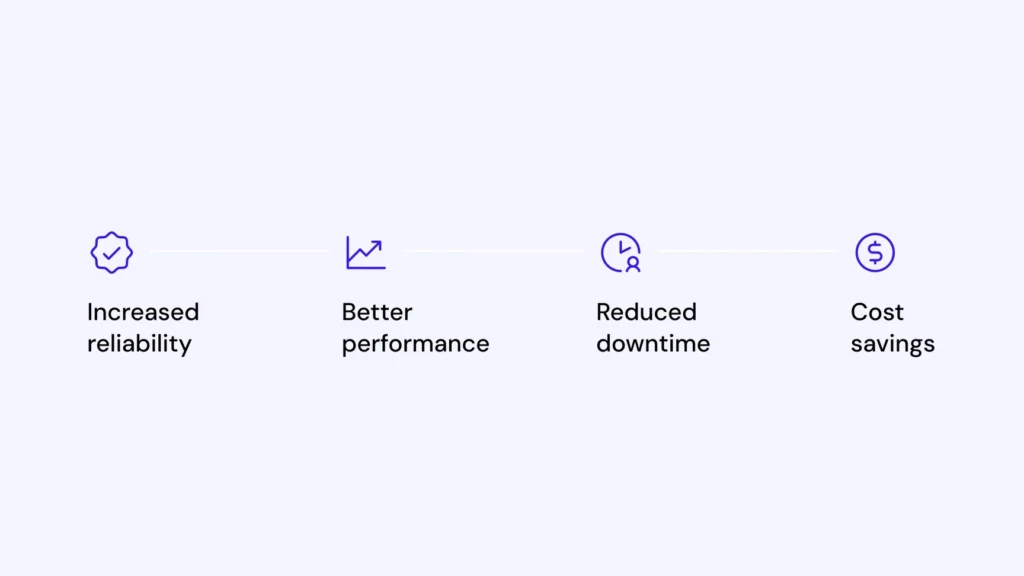Unlock top performance: Budget-friendly SRE strategies for your application.
Jun 26, 2024 8 min read
In today’s fast-paced digital landscape, maintaining a reliable and efficient system is paramount for any business. Site Reliability Engineering (SRE) is the answer to achieving this, combining software engineering and IT operations to create scalable and highly reliable systems. Many believe that SRE is only for large companies with extensive budgets and resources, but that’s not true. At Codal, we specialize in implementing SRE principles for businesses with small teams and limited budgets. Here’s how we can help you succeed.
Before delving into the implementation, it’s essential to understand the benefits of SRE. Originating from Google, SRE applies software engineering principles to operations and infrastructure tasks. This approach results in systems that are more scalable, reliable, and efficient. By partnering with us, you leverage these cutting-edge practices to ensure your systems run smoothly, even with limited resources.
1. Automation: Automate repetitive tasks to save time and reduce human error.
2. Monitoring: Continuously monitor the system to detect and fix issues early.
3. Reliability: Focus on building reliable systems that can withstand failures.
4. Performance: Ensure the system performs well under different conditions.
5. Incident response: Have a plan in place for quickly addressing and learning from incidents.
Step 1: Define your Service Level Objectives (SLOs): We start by defining clear, measurable Service Level Objectives (SLOs) for your key services. These SLOs are specific goals for the performance and availability of your service, providing a clear understanding of what “reliable” means for your system.
Step 2: Set up monitoring and alerting: Monitoring is crucial for knowing how your systems are performing and for detecting issues early. Our team sets up state-of-the-art monitoring tools like Prometheus and Grafana, tailored to fit your budget. We establish alerts for when performance drops below your SLOs, ensuring your team can quickly respond to potential problems.
Step 3: Automate repetitive tasks: Automation is a cornerstone of SRE. We identify repetitive tasks that take up a lot of time and implement automation solutions using tools like Jenkins and GitHub Actions. This reduces human error and frees up your team to focus on more important tasks.
Step 4: Implement incident management: Even with the best systems in place, incidents will happen. We help you establish a solid incident management process, creating a runbook that outlines steps to take during different types of incidents. Our team ensures that all members are familiar with these procedures, enabling quick and effective responses.
Step 5: Conduct post-incident reviews: After an incident, we conduct a thorough post-incident review to understand what went wrong and how it can be prevented in the future. This is a valuable learning opportunity, and we document the findings to implement changes that avoid similar issues.
Step 6: Foster a culture of continuous improvement: SRE is not a one-time effort but an ongoing process. We encourage a culture of continuous improvement within your team through regular meetings, training sessions, and staying updated with the latest industry practices.
1. Monitoring and logging: Utilize open-source tools like Prometheus for monitoring and the ELK Stack (Elasticsearch, Logstash, Kibana) for logging.
2. Automation: Employ Jenkins, GitHub Actions, and Ansible for automating deployments and other repetitive tasks.
3. Incident management: Use tools like PagerDuty and VictorOps for managing incidents, with free alternatives like OpsGenie’s free tier available.
4. Communication: Implement cost-effective communication tools like Slack or Microsoft Teams for team collaboration and incident management.
1. Limited resources: With a small team, covering all aspects of SRE can be challenging. We help you prioritize the most critical areas and gradually expand your efforts as your team and budget grow.
2. Lack of expertise: If your team lacks experience in SRE, we provide training and encourage continuous learning through free resources and online courses.
3. Resistance to change: Implementing SRE might require a cultural shift. We communicate the benefits clearly and involve the team in the decision-making process to gain their support.

1. Improved reliability: Our focus on automation, monitoring, and incident management ensures your systems are more reliable and resilient.
2. Better performance: Continuous monitoring and performance tuning by our experts ensure that your systems run efficiently.
3. Reduced downtime: Proactive incident management and quick response times reduce the impact of downtime, keeping your business running smoothly.
4. Cost savings: By automating repetitive tasks and improving efficiency, we save you both time and money.
Implementing SRE on a low budget with a small team is not only possible but highly effective with the right approach. At Codal, we specialize in helping businesses like yours achieve exceptional reliability and performance without breaking the bank. By following our step-by-step approach and leveraging affordable tools, your team can reap the benefits of SRE and ensure your systems run smoothly.

Explore our latest expertise on innovation, design, and technology, or connect with us directly to see how we can help accelerate your digital transformation.